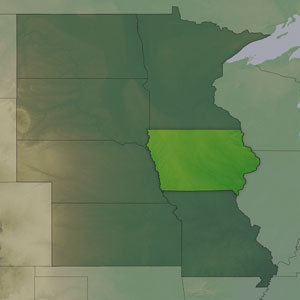IRFA: Iowa achieves record E85, midlevel blend sales in 2015

April 15, 2016
BY Iowa Renewable Fuels Association
An analysis of a recent Iowa Department of Revenue report shows the average biodiesel blend purchased in Iowa reached 11.0 percent in 2015, an increase from the 9.4 percent average blend in 2014 and a new all-time record. While still a small percentage of overall fuel sales, Iowans also purchased a record amount of E85 and mid-level ethanol blends in 2015. Iowa motorists purchased a record 13.1 million gallons (mg) of E85 in 2015, an 8.3 percent increase over 2014, while also purchasing 8.7 mg of mid-level ethanol blends (ranging from E15 to E69), a 121.1 percent increase over 2014.
“Despite the lack of renewable fuel standard (RFS) targets and the federal biodiesel blenders’ tax credit last year, biodiesel use took a step forward in 2015 increasing the average biodiesel blend purchased in the state to B11,” stated Iowa Renewable Fuels Association Executive Director Monte Shaw. “This shows the importance and effectiveness of forward-thinking state-level policies that encourage the use of locally-produced, cleaner-burning biodiesel.”
While sales of E10, or fuel containing 10 percent ethanol, held steady, sales of ethanol blends above E10 continued to grow. “While still making up a small portion of overall gasoline sales, we saw aggressive growth in E15 and mid-level ethanol blend sales in 2015,” Shaw added. “And despite historically low gasoline prices for a portion of the year, Iowans purchased a record amount of E85. There’s certainly more room to grow, but meaningful growth in higher ethanol blend sales is a win for the state’s economy and environment, as well as Iowans’ pocketbooks.”
On April 1, the Iowa Department of Revenue released its 2015 Retailers Fuel Gallons Annual Report. The Iowa Department of Revenue reported that it received filings representing 93.2 percent of fuel locations in Iowa. To view the full report, please click here.
Advertisement
Advertisement
Advertisement
Advertisement
Related Stories
The U.S. exported 31,160.5 metric tons of biodiesel and biodiesel blends of B30 and greater in May, according to data released by the USDA Foreign Agricultural Service on July 3. Biodiesel imports were 2,226.2 metric tons for the month.
The USDA’s Risk Management Agency is implementing multiple changes to the Camelina pilot insurance program for the 2026 and succeeding crop years. The changes will expand coverage options and provide greater flexibility for producers.
EcoCeres Inc. has signed a multi-year agreement to supply British Airways with sustainable aviation fuel (SAF). The fuel will be produced from 100% waste-based biomass feedstock, such as used cooking oil (UCO).
CARB on June 27 announced amendments to the state’s LCFS regulations will take effect beginning on July 1. The amended regulations were approved by the agency in November 2024, but implementation was delayed due to regulatory clarity issues.
SAF Magazine and the Commercial Aviation Alternative Fuels Initiative announced the preliminary agenda for the North American SAF Conference and Expo, being held Sept. 22-24 at the Minneapolis Convention Center in Minneapolis, Minnesota.
Upcoming Events










